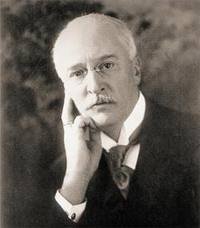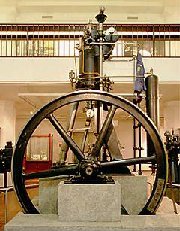Good 29º morning.
Yesterday we were clear here, but it was quite foggy in Grants Pass....as it is again today
We topped at 63º.
Picture of the Day...opps, the pole is in the way!😂
Interesting about hand saws........
In woodworking and carpentry, hand saws, also known as "panel saws", are used to cut pieces of wood into different shapes. This is usually done in order to join the pieces together and carve a wooden object. They usually operate by having a series of sharp points of some substance that is harder than the wood being cut. The hand saw is a bit like a tenon saw, but with one flat, sharp edge.
Handsaws have been around for thousands of years. Egyptian hieroglyphics exist depicting ancient woodworkers sawing boards into pieces. Ancient bow saws have been found in Japan. The cut patterns on ancient boards may be observed sometimes to bear the unique cutting marks left by saw blades, particularly if the wood was not 'smoothed up' by some method. As for preservation of handsaws, twenty-four saws from eighteenth-century England are known to survive.
Materials for saw blades have varied over the ages. There were probably bronze saws in the time before steel making technology became extensively known and industrialized within the past thousand years or so.
Sometimes cultures developed two main types of saw teeth: the cross cut saw teeth and the rip saw teeth. These cut into the wood using different mechanisms. Wood is composed of many long cells running length-ways. Thus, crosscut saws have saw teeth that are usually shaped, often with a metal file, in such a way that they form a series of tiny knife like edges. The wood cells are contacted by the knife-edge of the tooth and cut. Rip saws, on the other hand, are usually shaped so that they form a series of tiny chisel-like edges. The wood cells are contacted by the chisel and 'ripped' apart from the bundle of other cells. It is common that people do not recognize the difference and use saws both ways. However, a rip saw is much faster than a cross-cut saw when cutting with the grain but leaves a very rough cut, often with splinters on the surface, and has more difficulty maintaining a straight cut when cutting across the grain. The cross-cut saw can cut in any direction but is much slower than needs be when cutting with the grain.
The development of saws was also affected by several factors. The first was the importance of wood to a society, the development of steel and other saw-making technologies and the type of power available. These factors were, in turn, influenced by the environment, such as the types of ores available, the types of trees nearby and the types of wood which was in those trees. Finally, the types of jobs the saws were to perform was also important in the development of the technology.
Among Basques and Australians, traditional hand sawing has generated rural sports. The Basque variant is called tronral.
From Mr. Food
Here's an easy way to make a classic breakfast "sandwich." Our Breakfast Pita Pockets are stuffed with two breakfast favorites: cheesy scrambled eggs and bacon! Everyone in your family is going to love these!
- 8 slices bacon
- 4 eggs
- 1 tablespoon water
- 1/2 teaspoon salt
- 1/4 teaspoon black pepper
- 1 tablespoon butter
- 1/2 cup shredded cheddar cheese
- 4 (6-inch) pita breads, cut in half and warmed
- In a large skillet over medium-high heat, cook bacon for 6 to 8 minutes or until crispy; drain on paper towel and cut each slice in half.
- In a medium bowl, combine eggs, water, salt and pepper; mix well. In a medium skillet, melt butter over medium heat; add egg mixture and scramble until firm. Remove skillet from heat and sprinkle cheese over eggs.
- Spoon eggs equally into each pita. Place four pieces of bacon into each pita. Serve immediately.
Historically this date.........
How sad the case has not been solved nor the art recovered!
And births this date include....
My sister, Marion, knew Peter. He had a house at Tahoe and her real estate office rented it out for him. He told Marion lots of Hollywood stories, especially ones about Liz Taylor and Richard Burton, with whom Peter socialized. The stories were always whoppers!
.... I always LOVED his voice!
All I know. Nuff said. Have a good Saturday. Ciao.
xo Sue Mom Bobo
No matter how you make this hot sandwich, on March 18th, celebrate National Sloppy Joe Day.
The Sloppy Joe is one of America’s all-time favorite hot sandwiches. Its base ingredient is often ground beef. However, others use turkey and buffalo, too. The other elements give it its flavor, though. Onions, tomato sauce, brown sugar, cola or maple syrup to sweeten it and seasonings to spice it – and of course, any secret ingredient families may add over the years. All of it is served up on a hamburger bun or roll. And is it ever sloppy! Be sure to grab more than one napkin!
Who Created The Sloppy Joe
Meet Joe
There are different claims to the origin of the sloppy Joe. In Havana, Cuba, in the 1930s, there was a genuine bartender who gained popularity with vacationers who went by the name of Sloppy Joe. He earned his name for his less than enthusiastic way of cleaning the bar. He was, however, an attentive bartender, and the bar was a hot spot for the jet set.
However, no mention is found in papers from the era of a hot sandwich on the menu matching the description of a Sloppy Joe, and the man of the same name retired to Spain in 1933.
Town Hall Deli
Reader Steven Hirsch wrote to National Day Calendar and informed us that Town Hall Deli in Maplewood, NJ has a direct connection to Sloppy Joe of Havana fame. It opened in 1927, and during the 1930s, Maplewood’s Mayor Sweeney traveled to Havana, where he met the bartender named Sloppy Joe and was served a delicious sandwich. The mayor came back to New Jersey and with a well-developed taste for Joe’s sandwich. The mayor enjoyed it so much he asked one of Town Hall Deli’sproprietors, Fred Heinz, to replicate it. According to the website, “It was made with coleslaw, ham, cow tongue, swiss cheese, with lots of dressing and was served on thin rye bread. Hence, the origin of the Sloppy Joe sandwich and how Town Hall Deli of South Orange became The Birthplace of the Sloppy Joe!”
Then in 1934…
At the Ye Olde Tavern Inn, in Sioux City, Iowa, Abraham and Bertha laid claim to the Sloppy Joe when they added a loose meat sandwich on their menu in 1934.
Whoever brought the Sloppy Joe to the world, Hunt’s made it more convenient in 1969. They put it in a can and called it Manwich.
Today many families have their secret recipes that make their Sloppy Joe’s special. Whether it’s an unusual spice, a novel ingredient for sweetening or a homemade tomato sauce, a Sloppy Joe lends itself to originality and personality. A new flavor is just around the corner. In the south, you might come across a barbecue flavor while in the north, Sloppy Joe might be a little sweeter. Whatever your flavor, it is undoubtedly an all-American food holiday!
HOW TO OBSERVE
You know what to do! Whip up your favorite Sloppy Joe recipe and sides. Enjoy one of the following Sloppy Joe recipes:

















No comments:
Post a Comment